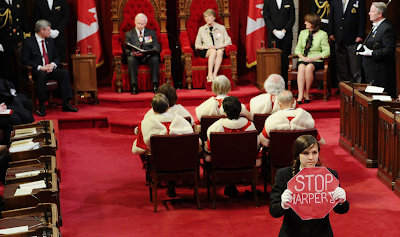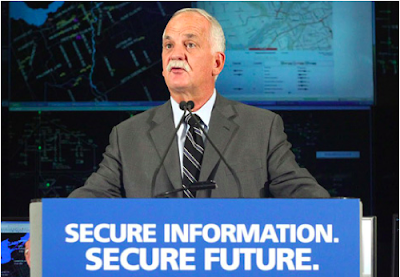There was a great read in the New York Times last Sunday on Barack Obama’s presidency given the debt ceiling events of the preceding week, “What Happened to Obama?” It was a piece by Drew Westen, professor and author of the acclaimed book “The Political Brain: The Role of Emotion in Deciding the Fate of the Nation.” The central point in the op-ed was the importance of storytelling in politics and how Obama, surprisingly, has failed in that regard.
When Barack Obama rose to the lectern on Inauguration Day, the nation was in tatters. Americans were scared and angry. The economy was spinning in reverse. Three-quarters of a million people lost their jobs that month. Many had lost their homes, and with them the only nest eggs they had. Even the usually impervious upper middle class had seen a decade of stagnant or declining investment, with the stock market dropping in value with no end in sight. Hope was as scarce as credit.
In that context, Americans needed their president to tell them a story that made sense of what they had just been through, what caused it, and how it was going to end. They needed to hear that he understood what they were feeling, that he would track down those responsible for their pain and suffering, and that he would restore order and safety. What they were waiting for, in broad strokes, was a story something like this:
“I know you’re scared and angry. Many of you have lost your jobs, your homes, your hope. This was a disaster, but it was not a natural disaster. It was made by Wall Street gamblers who speculated with your lives and futures. It was made by conservative extremists who told us that if we just eliminated regulations and rewarded greed and recklessness, it would all work out. But it didn’t work out. And it didn’t work out 80 years ago, when the same people sold our grandparents the same bill of goods, with the same results. But we learned something from our grandparents about how to fix it, and we will draw on their wisdom. We will restore business confidence the old-fashioned way: by putting money back in the pockets of working Americans by putting them back to work, and by restoring integrity to our financial markets and demanding it of those who want to run them. I can’t promise that we won’t make mistakes along the way. But I can promise you that they will be honest mistakes, and that your government has your back again.” A story isn’t a policy. But that simple narrative — and the policies that would naturally have flowed from it — would have inoculated against much of what was to come in the intervening two and a half years of failed government, idled factories and idled hands. That story would have made clear that the president understood that the American people had given Democrats the presidency and majorities in both houses of Congress to fix the mess the Republicans and Wall Street had made of the country, and that this would not be a power-sharing arrangement. It would have made clear that the problem wasn’t tax-and-spend liberalism or the deficit — a deficit that didn’t exist until George W. Bush gave nearly $2 trillion in tax breaks largely to the wealthiest Americans and squandered $1 trillion in two wars.
And perhaps most important, it would have offered a clear, compelling alternative to the dominant narrative of the right, that our problem is not due to spending on things like the pensions of firefighters, but to the fact that those who can afford to buy influence are rewriting the rules so they can cut themselves progressively larger slices of the American pie while paying less of their fair share for it.
But there was no story — and there has been none since.
The main point was the pitfall of not having a narrative, raising doubts about what you stand for and leaving yourself exposed to others who do have a story to tell. Additionally, there was some highly critical analysis of Obama’s character and background that jumped out as well, suggesting that he is perhaps incapable of meeting the moment, of meeting the challenge of these Republicans who are seemingly incapable of compromise. It was a very critical column but also one that really offered a rude awakening/opportunity to the White House.
As a Canadian political observer, I found the Westen piece interesting. On the liberal side of the political spectrum up north, we too could use some good storytelling and storytellers, for that matter, too. Let’s just say we’re in a bit of a deficit situation on that score at the moment and looking to dig our way out. In fact, three of the opposition parties are in interim leadership situations. Leaving our political narrative a little too tilted in a conservative direction at the moment and in need of a strong counter (our new Conservative majority government obtained just 39.62% of the vote in the May 2011 federal election yet still managed to obtain a majority of seats).
Not everyone agreed with Westen’s take on Obama’s failed narrative and the critique that it embodied. Speaking to the other side of the Obama coin was Andrew Sullivan who offered up one of his blog items “Who is Washington’s Most Effective Politician?” as a counter to Westen’s attention getting op-ed.
I think Obama is easily the winner and currently stupidly under-rated – and drowned out by all the noise in the conservative-media-industrial-complex.
Here are the political accomplishments: defeating the most heavily favored party machine in decades (the Clintons) while actually bringing his biggest rival into his cabinet, where she has performed extraordinarily well; helping to cement the GOP’s broad identity as extremists opposed to compromise; entrenching black and Hispanic loyalty to his party; retaining solid favorables and not-too-shabby approval ratings during the worst recession since the 1930s. 44 percent of the country still (rightly) blame Bush for this mess, only 15 percent blame Obama.
On policy: ending the US torture regime; prevention of a second Great Depression; enacting universal healthcare; taking the first serious steps toward reining in healthcare costs; two new female Supreme Court Justices; ending the gay ban in the military; ending the Iraq war; justifying his Afghan Surge by killing bin Laden and now disentangling with face saved; firming up alliances with India, Indonesia and Japan as counter-weights to China; bailing out the banks and auto companies without massive losses (and surging GM profits); advancing (slowly) balanced debt reduction without drastic cuts during the recession; and financial re-regulation.
Yes, there have been failures. The election of Scott Brown; the 2010 mid-terms; the surrender to Netanyahu and AIPAC; the botched and ill-conceived war in Libya; the failure to embrace Bowles Simpson up-front; the collapse of cap and trade (maybe not such a bad thing anyway). But notice what hasn’t happened. Where are all the scandals promised by Michelle Malkin? Where are his Katrinas and Monicas?
When I read commentaries expounding on the notion that this man is competely out of his depth, I just have to scratch my head. Given his inheritance, this has been the most substantive first term since Ronald Reagan’s. And given Obama’s long-game mentality, that is setting us up for a hell of a second one.
Now if only the guy can convince his nation that he is a winner…


